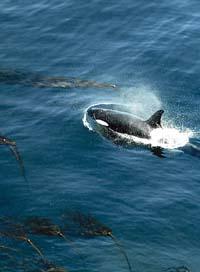A research with cetaceans helps explain why menopause

Scientists have long been investigating what may be the cause of female menopause. Now, thanks to a study with the orcas and the boilers, they have new indications to know better their response.
The "grandmother's hypothesis" is one of the most accepted hypotheses that explains why women have menopause. According to him, from the evolutionary point of view, for the group is beneficial the sterilization of the most mature women, so that they have no obstacles to take care of the children of the group and relieve young females.
Researchers at Exeter and the University of Cambridge thought that comparison with other mammals would help test the value of the hypothesis. Chimpanzees and gorillas have been analyzed previously by other researchers, but the conclusions are not clear. However, researchers from both universities have shown that some cetaceans, namely orcas and dolphins, also suffer from menopause and decide to investigate with them.
Thus, they have developed a mathematical model to investigate the dynamics of kinship of human beings, orcas and dolphins. Thanks to this, it has been observed that the females of the three species join more closely to the offspring as they suffer menopause and aging. To some extent, it is surprising that the three have the same result, since in the human groups the male tends to leave the group to form the new group, while in the cetaceans the same does not happen. Hence it follows that the developed model is useful to highlight the links that hide behind the different behaviors. The study was published in the scientific journal Proceedings of the Royal Society B.





